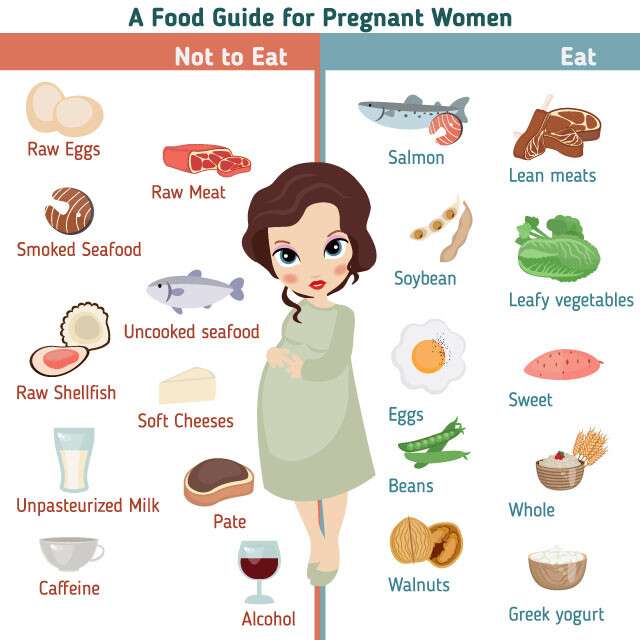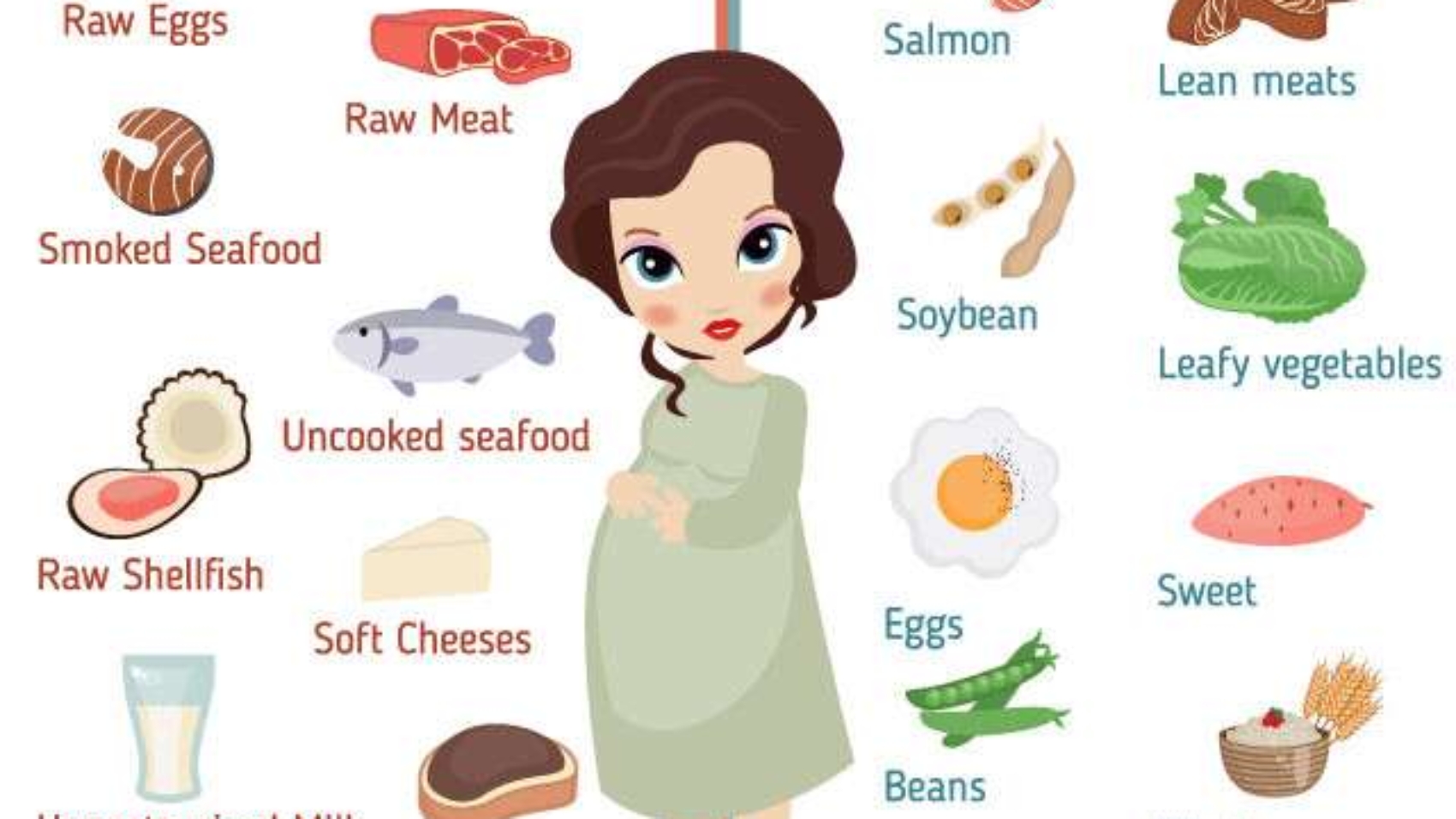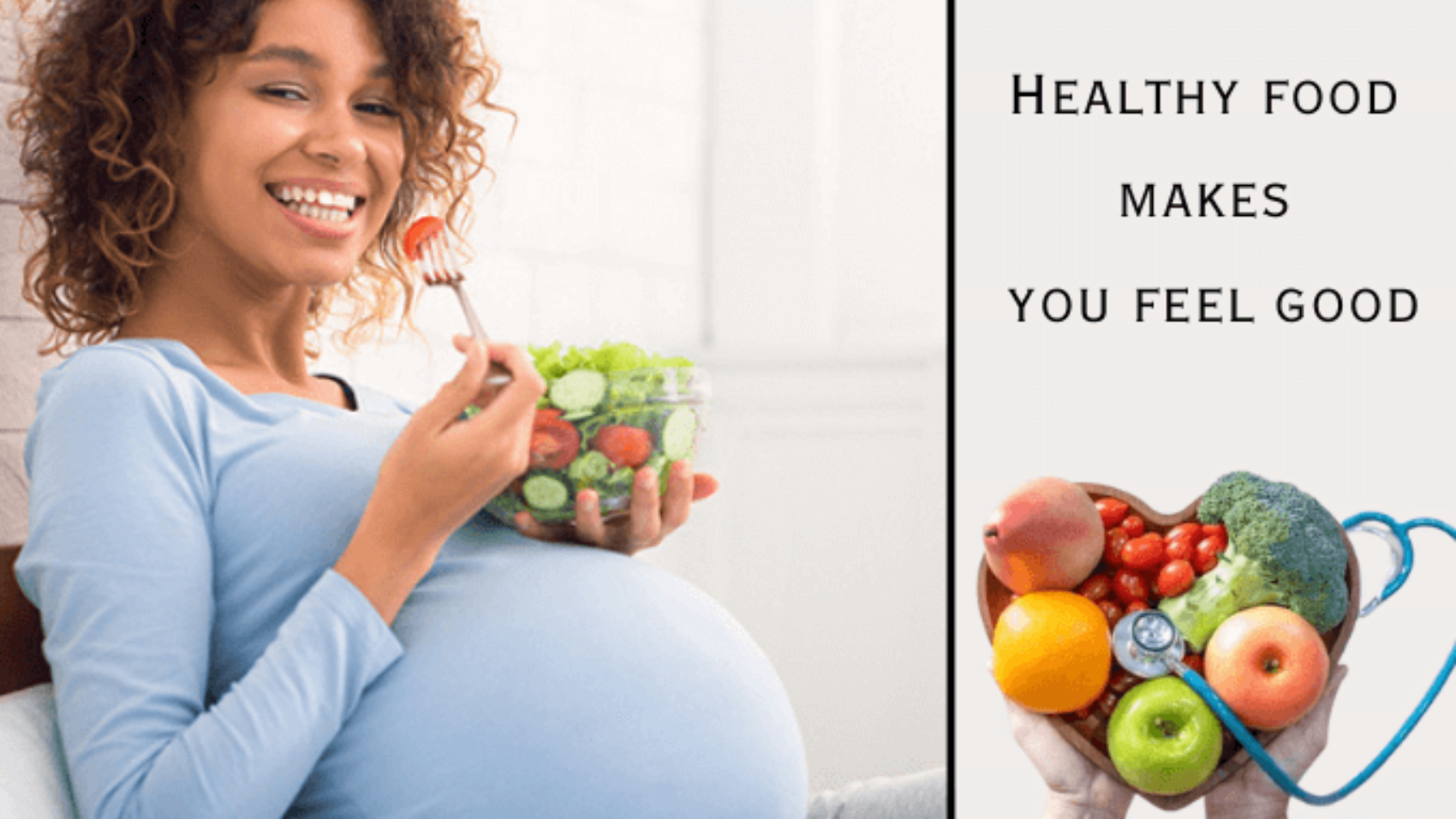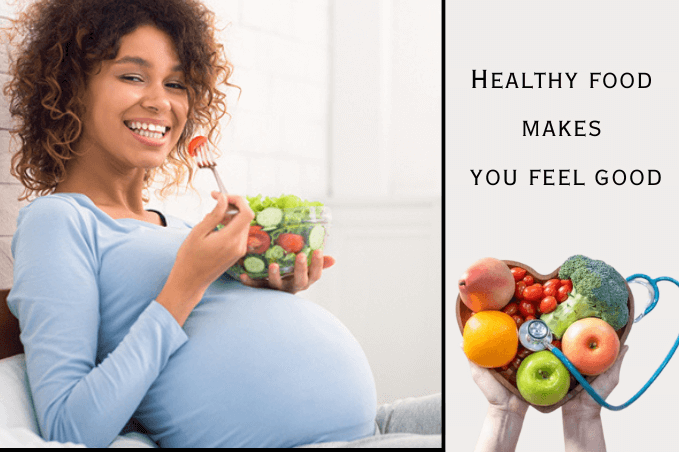
Introduction
A journey of transformation, pregnancy is full of excitement and anticipation as well as a plethora of physical and emotional changes. Making sure the mother and the developing fetus receive the best nutrition possible is one of the most important parts of this journey. In this comprehensive guide, we’ll delve into the intricacies of crafting a 1 to 3-month pregnancy diet chart, offering invaluable insights and practical tips to help expectant mothers navigate this pivotal period with confidence and ease.
Making many choices is part of navigating the pregnancy journey, particularly about nutrition. Pregnant women should use a well-organized pregnancy diet chart as a guide to make sure they are getting the extra nutrition they need during this crucial stage of fetal development. Let’s examine the significance of a pregnancy diet plan and how it can improve fetal development and the mother’s health.
Understanding the Significance of Eating Well Throughout Pregnancy
Pregnancy is marked by a range of amazing physiological changes that are intended to support and nourish the growing fetus. Early in pregnancy, especially in the first three months, adequate nutrition establishes the groundwork for healthy growth and development, which in turn creates the conditions for a smooth and successful pregnancy journey.
Essential Elements for Ideal Development of the Baby
The body goes through significant changes during the first trimester to support the embryo’s rapid growth and development. Thus, it becomes necessary to give priority to consuming vital nutrients that are crucial for both the development of the fetus and the health of the mother.
Folate Is Essential for a Healthy Pregnancy
Folate, sometimes referred to as vitamin B9, is an essential vitamin that is essential for maintaining healthy fetal development and preventing neural tube defects. For the baby’s brain and spinal cord to develop normally, adequate folate intake during the early stages of pregnancy is crucial.
Iron: Powering Essential Processes
Another vital nutrient that becomes more crucial during pregnancy is iron. It is in charge of making hemoglobin, the red blood cell protein that transports oxygen to all of the body’s tissues. For the growing fetus to receive the best possible oxygen delivery and to support the increased blood volume during pregnancy, pregnant women need higher amounts of iron.
Calcium: Strengthening Teeth and Bones
Calcium is a necessary nutrient during pregnancy because it is vital to the growth of the fetus’s bones and teeth. To meet the developing needs of both the mother and the unborn child, pregnant women must make sure they are getting enough calcium in their diet.
Proteins: The Components of Life
Since protein provides the building blocks for cells, tissues, and organs, it is essential for the growth and development of the fetus. To meet the increased demands of pregnancy and support the baby’s rapid growth, pregnant women should try to consume an adequate amount of protein.
Recognizing the Needs for Nutrition During Pregnancy
Significant physiological changes occur during pregnancy, necessitating a higher intake of vital nutrients to support both the health of the mother and the development of the fetus. A pregnancy diet chart serves as a guide, providing expectant mothers with information on essential nutrients and helping them make educated food choices.
Creating an All-Inclusive Pregnancy Nutrition Chart
A thorough pregnancy diet chart must take into account all the important nutrients that are necessary for both the mother and the developing fetus. Every nutrient from calcium and protein to iron and folate is essential for promoting the best possible outcomes during pregnancy. Expectant mothers can make sure they meet their nutritional needs and support their baby’s healthy growth and development by including a range of nutrient-rich foods in their diet.
Easy Meal Planning
Pregnant women can more easily meet their nutritional goals by simplifying meal planning with the help of an organized pregnancy diet chart. A pregnancy diet chart offers precise instructions for preparing meals that are nourishing and well-balanced by breaking meals down into food groups and defining serving sizes. Using a pregnancy diet chart guarantees that every meal breakfast, lunch, dinner, and snack is nutrient-dense and necessary during this crucial time.
Answering Frequently Asked Questions and Concerns
Concerns and queries concerning their dietary decisions during pregnancy are common among expectant mothers. These worries are addressed by a pregnancy diet chart, which offers evidence-based suggestions and helpful advice for managing typical difficulties like food cravings, morning sickness, and dietary restrictions. A pregnancy diet chart enables expectant moms to make educated decisions regarding their nutrition and overall health by providing direction and encouragement.
Observing and making necessary adjustments
The pregnancy diet chart may need to be adjusted as the pregnancy goes on because nutritional needs can change. Expectant mothers can modify their diet plans to suit changing needs and preferences by regularly monitoring their health and consulting with healthcare professionals. With a flexible pregnancy diet chart, you can adjust meal timings to ease discomfort or add new foods to address nutrient deficiencies. Either way, your nutritional needs will be met throughout the whole pregnancy journey.
Making a Pregnancy Diet Chart Packed with Nutrients
Equipped with the understanding of the essential nutrients necessary for a healthy pregnancy, let’s set out to create a detailed first to three months of pregnancy diet chart that gives priority to consuming these necessary nutrients.
Breakfast: A Filling and Nutritious Start to the Day
A balanced breakfast sets the stage for the best possible nutrition for the rest of the day. For long-lasting energy and vital nutrients, try to eat a range of nutrient-rich foods, such as whole grains, lean proteins, healthy fats, and fresh fruits.
Examples of Breakfast Menus
- Avocado on whole grain toast with scrambled eggs
- Overnight oats with fresh berries and Greek yogurt on top
- Whole grain toast is served with an omelet with spinach and feta.
Mid-Morning Snack: Eating Well to Maintain Energy Between Meals
Eat a healthy snack to stave off mid-morning hunger pangs and give your energy and vital nutrients a boost. Choose healthy fats, fiber, and protein-rich snacks to ensure you feel full and energized until your next meal.
Examples of Snack Concepts:
- Almond slices and granola paired with Greek yogurt
- Almond butter on apple slices
- Pineapple chunks with cottage cheese
Lunch: A Wholesome Meal to Fuel Your Afternoon
Enjoy a well-balanced lunch that includes plenty of colorful vegetables, complex carbohydrates, and lean proteins to replenish your body. To support optimal nutrition and give you and your baby the vitamins and minerals you need, try to include a range of nutrient-dense foods.
A few lunch ideas are as follows:
- grilled chicken salad with cherry tomatoes, quinoa, and mixed greens.
- A whole grain wrap stuffed with lettuce, tomato, avocado, and turkey breast
- Steamed veggies and whole grain bread are served alongside lentil soup.
Snack in the Afternoon: An Energy Boost to Get Through
Eat a nutrient-rich snack that will provide you with sustained energy and the nutrients you need to fight afternoon fatigue and cravings. Snacking on foods high in fiber, protein, and good fats will help you stay full and concentrated until dinnertime.
Examples of Snack Concepts:
- Nuts, seeds, and dried fruit in trail mix
- Hummus paired with cucumber and carrot sticks
- Grapes and cheese on whole grain crackers
Dinner: A Nourishing End to the Day
A healthy dinner that fuels your body and promotes optimum health and well-being is a great way to end the day. To create a well-rounded meal that satisfies your hunger and gives you and your baby the essential nutrients, concentrate on including lean proteins, complex carbohydrates, and an abundance of vegetables.
Suggested Dinner Ideas:
- Quinoa and roasted vegetables paired with baked salmon
- Mixed vegetables and brown rice with stir-fried tofu
- Marinara sauce and whole wheat pasta paired with turkey meatballs
Evening Snack: Make Wise Decisions to Fulfill Your Cravings
With a healthy evening snack that fulfills your cravings without sacrificing your nutritional objectives, you can cap off your day on a high note. To feel full and content until bedtime, choose high-protein and high-fiber snacks.
Examples of Snack Concepts:
- Greek yogurt topped with honeydew and sliced bananas
- Sliced strawberries and almond butter on whole-grain toast
- Cottage cheese topped with cinnamon and sliced pears
Conclusion
Navigating the journey of pregnancy is a remarkable experience filled with joy, anticipation, and an abundance of changes. By prioritizing proper nutrition and crafting a comprehensive 1 to 3-month pregnancy diet chart that emphasizes the intake of essential nutrients, expectant mothers can support optimal health and well-being for themselves and their growing babies.
Pregnant women can benefit greatly from a well-organized pregnancy diet chart, which can direct them toward a healthy pregnancy and optimal nutrition. An expectant mother can make educated dietary decisions and put her own and her unborn child’s health first by using a pregnancy diet chart, which offers clear guidelines, addresses common concerns, and allows for flexibility in making adjustments.
Frequently Asked Questions (FAQs) About 1 to 3 month Pregnancy Diet Chart
Q1: Throughout the first to three months of my pregnancy, how often should I check and modify my pregnancy diet chart?
Reviewing and modifying your pregnancy diet chart regularly is advised, particularly since your nutritional requirements may vary during the first three months of pregnancy and beyond. Maintain contact with your physician or registered dietitian to track your progress, discuss any worries, and modify your diet plan as needed to guarantee the best possible health and well-being for both you and your child.
Q2: What are some pointers for adding diversity to a one- to three-month pregnancy diet plan?
Aim to include a range of foods from all food groups in your pregnancy diet chart to guarantee a varied and nutrient-rich diet during your pregnancy. For a broad range of vitamins, minerals, and antioxidants necessary for optimum health and fetal development, including a rainbow of fruits and vegetables, lean proteins, whole grains, dairy or plant-based substitutes, and healthy fats.
Q3: How can I create a personalized pregnancy diet chart for the 1 to 3-month period?
Assessing each person’s dietary preferences, nutritional requirements, and any particular health concerns is necessary before creating a customized pregnancy diet chart. Begin by speaking with a medical professional or registered dietitian to create a personalized plan that fits your objectives and guarantees you are getting enough of important nutrients like protein, calcium, iron, folate, and so forth.













